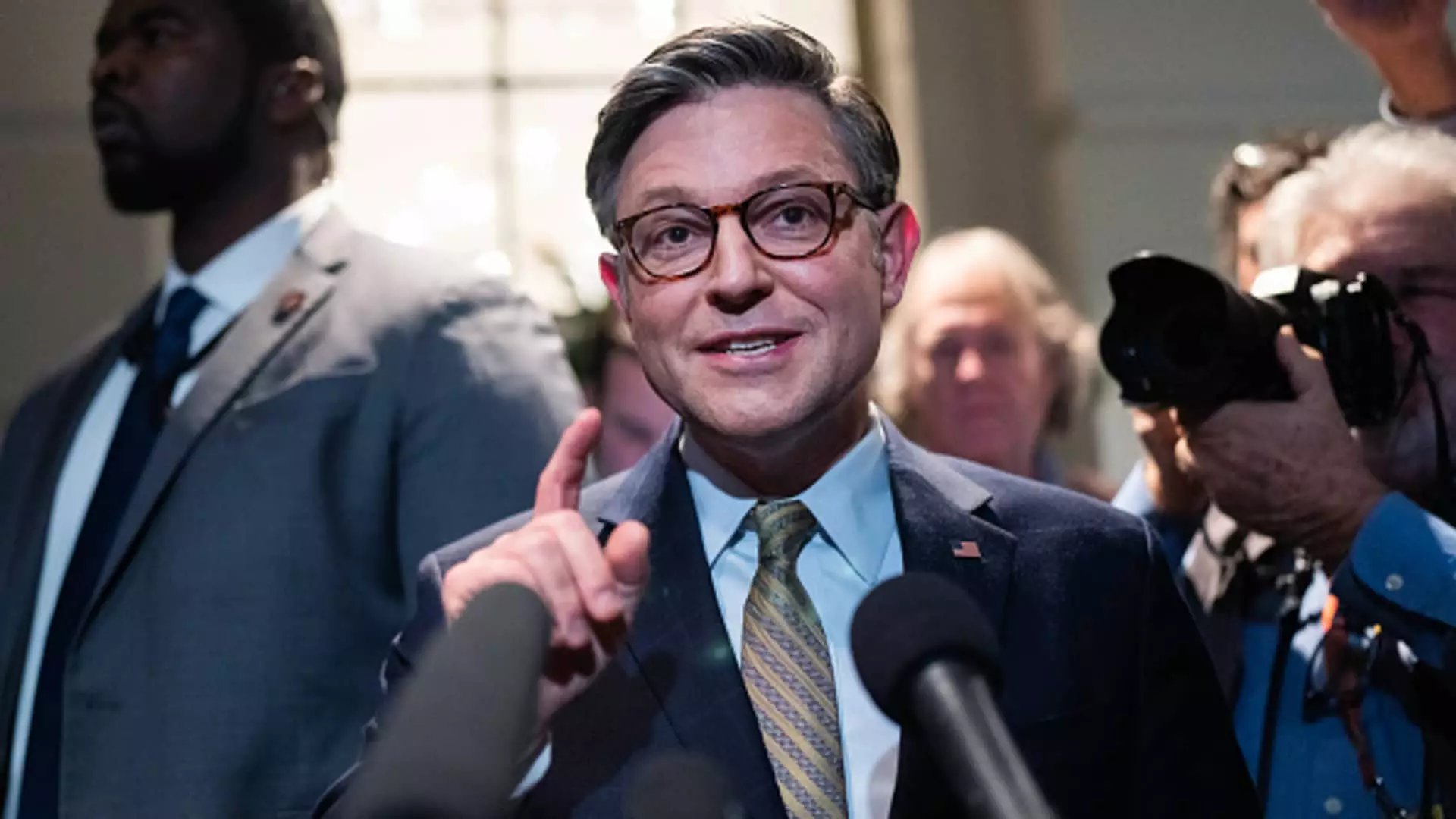In the ever-turbulent landscape of U.S. politics, the recent bipartisan federal spending bill, which received approval from the House of Representatives, has ignited discussions on legislative efficacy and political cooperation. This legislation comes in the nick of time, just hours before the government was set to run out of funding, making it a crucial development for both lawmakers and federal employees. As we dissect the implications of this spending bill, it becomes evident that it illustrates both the achievements and challenges inherent in contemporary governance.
The recently approved spending bill facilitates government funding at current levels for a span of three months while also earmarking financial relief for disaster-affected areas and to the agricultural sector. The endorsements from a diverse coalition of Democrats and a significant fraction of the Republican party reflect a shared recognition of the consequences that a government shutdown would impose. The necessity to avert a disruption, especially on the brink of the holiday season—one that could impede paychecks for hundreds of thousands of federal employees—offers a glimmer of hope for legislative bipartisanship.
Nonetheless, this cooperation raises profound questions about deeper political rifts and the nature of compromise in our current political landscape. The House vote demonstrated significant bipartisan support, garnering two-thirds of the votes in favor of the bill, indicating a collective acknowledgment of the dire ramifications of governmental paralysis. Yet, these numbers also highlight the complexity embedded within the legislative process, particularly in the Democratic-controlled Senate where individual senators wield considerable influence, potentially complicating further negotiations.
Challenges Ahead: The Debt Ceiling Debate
While the passage of the spending bill signals a momentary victory, it does not obscure the looming battles regarding the country’s debt ceiling. The former President Donald Trump’s insistence on enacting a two-year suspension of this limit presents a major sticking point in negotiations moving forward. The debt ceiling symbolizes a recurring theme of contention in Washington, often transforming into a politically charged battleground that has significant implications for fiscal policy and economic stability.
The entangled interests of various factions within the Republican party indicate that navigating these waters will be fraught with complications. Hardline conservatives, many of whom emerged as critical voices opposing Thursday’s proposed measure, demonstrate the ideological divisions that can disrupt legislative agreements. Their resistance underscores the delicate balance that lawmakers must strike between creditworthiness and the necessity of government funding, thereby exemplifying the tightrope act that is required to achieve bipartisan consensus.
The recent events in Congress illuminate a critical period for incoming President Biden and his administration as they seek to navigate the complexities of controlling a fragmented Republican caucus. Understanding the intricate dynamics within the House of Representatives will be pivotal for the President as he pushes forward with his policy agenda. The lessons drawn from this spending bill episode suggest that without fundamental alignment on pivotal issues such as the debt ceiling, the path towards long-term legislative success remains tenuous.
The cooperation observed in passing this temporary spending measure may herald a willingness to collaborate on future issues, yet the unresolved conflicts surrounding the budget highlight the ongoing struggles between various political factions. The divisions highlighted by Trump’s demands suggest that while elements of bipartisanship may exist, significant hurdles remain.
As we reflect on the approval of this bipartisan spending bill, we are confronted with a duality of progress and challenge. This moment serves as both a testament to the capacity for collaboration amidst a polarized political climate and a stark reminder of the formidable challenges that remain ahead. The coming weeks will undoubtedly reveal whether this legislation marks a turning point in the ability of Congress to govern effectively or whether deeper fractures will continue to impede significant legislative advancements. Ultimately, the art of governance may depend on the willingness to engage in meaningful dialogue and compromise—qualities that seem increasingly rare in contemporary politics.

